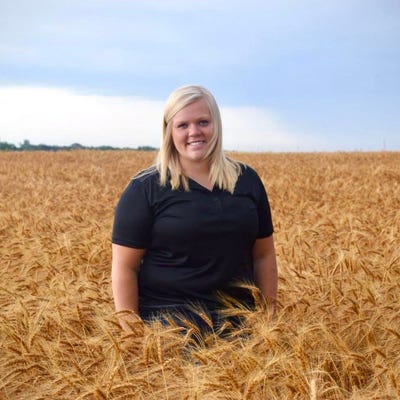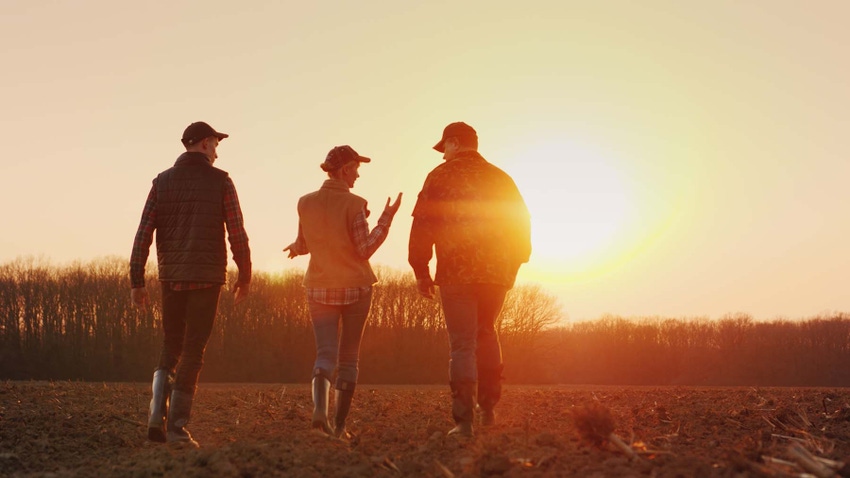
Transition planning isn’t like a multiple-choice test, where there’s only one right answer, or at best, both “B” and “C” are answers that will work for your farm operation.
The intricacies of transition planning were apparent while listening to three farmers from Iowa and Nebraska who are in the heart of executing their own farm transitions. They spoke at the 2024 Farm Futures Business Summit in Coralville, Iowa, earlier this year.
Leadership takes time
Succession planners and attorneys can point you down roads to limit your taxes, but that’s the easy stretch on the transition map.
“Moving the equipment and the land during the transition is the easy part,” said Roger Safranek, a fifth-generation farmer from Merna, Neb.
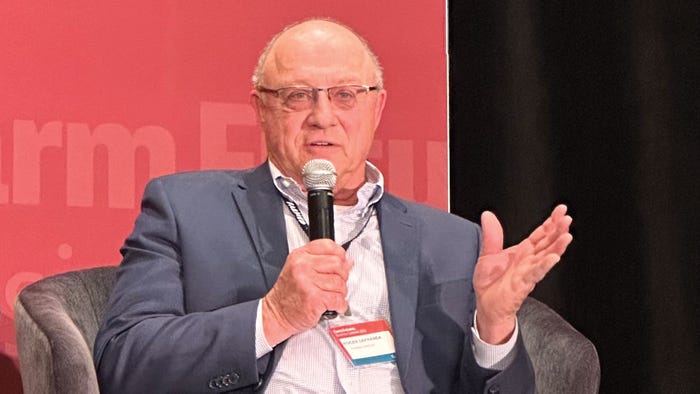
The original transition plan did not pan out for Roger Safranek and his family of Merna, Neb. They are working on a backup plan to suit the needs of the next generation. Credit: Pam Caraway
“Plans are worthless, but planning is useful,” said fellow Nebraska farmer Scott McPheeters.
Farming with his two sons near Gothenburg, McPheeters said many transition experts ask farmers what they want to happen after their death. “That’s a really good question, but I’m more interested in what’s happening while I’m here,” he said.
Both farmers agree transferring management can be the more difficult step in transition planning.
McPheeters said his transition plan centered on fostering leadership. He knew he wanted to transition leadership to the next generation when he bought his siblings’ shares of the farm business in 2012. One of his sons is the chief operating officer of the farm, and the other is the chief financial officer.
McPheeters doesn’t hold an official title on the farm, but he’s around to support them while they grow into their roles. He said his life goal is to not be needed.
“That’s the reason I’m here: I got fired yesterday,” McPheeters quipped. “But they do rehire.”
Back to basics
Ben Reinsche, a farmer from Waterloo, Iowa, said, “I’ve seen farms with sophisticated buy-sell agreements or farmers who try to control beyond the grave 100 years after they’re gone, but I don’t know if that always works.”
When it comes to building the future, Reinsche focuses on three basics:
1. Raise great kids. “Too often I’ve seen farms that realize they’ve raised their kids to be hired hands,” Reinsche said.
He encourages farmers to look at their kids and grandkids as future business partners. While raising their kids, Reinsche and his wife often took their children to visit other farms to see how they operate, and to appreciate what they have and not take it for granted.
2. Take time away from farm. “We have a rule at our farm that you have to spend time away from the farm before you can come back,” Reinsche said. “It’s a five-year plan.”
He expects his children to go to college, which the family pays for. After graduating from college, the next generation goes to work off-farm. “They need to go out and gain skills we don’t have, so they don’t come home and make the same mistakes I did,” he said.
3. Follow path to full partnership. “A lot of times when young people come back to their family farm, they just assume they’re going to be a partner right away,” Reinsche said.
He encourages farmers to create a professional path to partnership for their operation. “You really can’t be a partner until you are able to bring in the scarcest resource,” he said, such as land, a livestock barn, a custom business or financing. “You’re just an employee or a team member until you can contribute, take risk and show the initiative to be a full partner.”
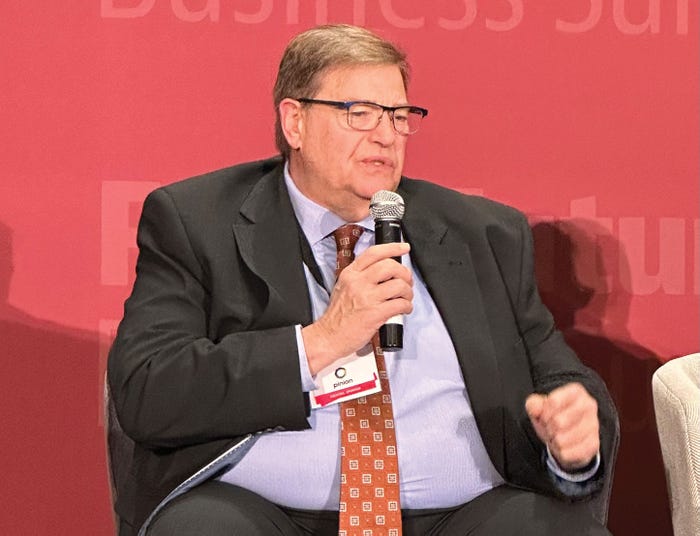
Ben Riensche of Waterloo, Iowa, said he encourages his children to work off the farm to gain skills they can eventually bring back home. Credit: Pam Caraway
Keep bus moving
Safranek’s farm transition isn’t quite going as planned. He and his wife planned to rent a little extra ground. Then when old enough, their sons could rent that land to build their own farms and grow their skills while also working for the main operation.
“We did that, and the plan went pretty well — until they were about 30 years old,” Safranek said.
One of the sons went to work off-farm to meet his financial needs. Still, all he thinks about is farming, and that’s where his heart is.
The other son has good people skills, but managing the operation and the day-to-day business was too stressful for him.
“The Lord just did not make him to fill that seat on the bus,” Safranek said. “All of these great plans we had just didn’t fit our two boys.”
Safranek said they are now on Plan B or C, and it’s still evolving. “We’ve gotten to know our kids and in-laws — how they’re gifted and what they enjoy doing — and then try to arrange the seats on the bus so the bus can still go down the road,” Safranek said.
Fill the gaps
For now, Safranek continues to run the day-to-day farm operations and manage the finances, and the son who farms with him oversees buying inputs and making deals. If Safranek is no longer able or decides not to continue in his position, his son plans to hire a farm manager.
“We have to view it more like big industry, where we hire the people with the skills and abilities that our family doesn’t have,” Safranek said. “We can plug our kids in where they do well and where they like, and then hire those gaps in the production cycle to make the operation work.”
Anytime a transition takes place, McPheeters said each family needs to continually evaluate what works.
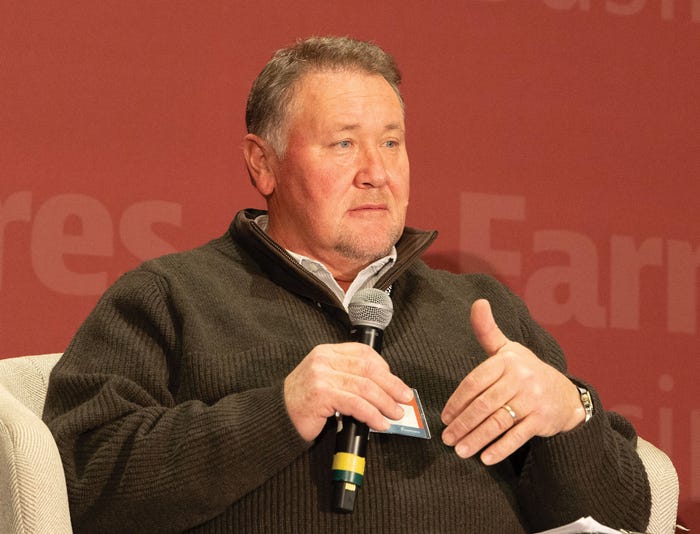
Scott McPheeters of Gothenburg, Neb., said families cannot afford to rebuy the farm every generation – there has to be a plan. Credit: Gil Gullickson
For the three farmers who addressed farm succession at the Farm Futures Summit, learning continues as they tailor their transition plan to fit their families.
About the Author(s)
You May Also Like


